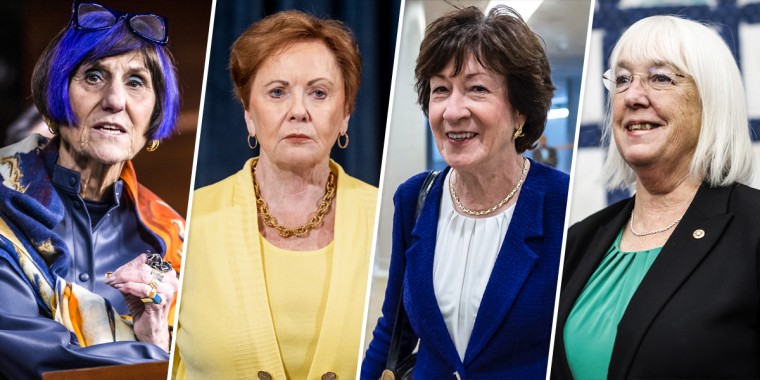WASHINGTON — More than 50 years ago, two female lawmakers led a congressional committee for the first time: the House Select Committee on the Beauty Shop, overseeing a business popular with women who worked in the Capitol.
This year, women will hold all four of the top positions on the House and Senate Appropriations committees for the first time in history. The powerful panels control $1.7 trillion in federal spending each year on every aspect of American life, from education and defense to cancer research and roads.
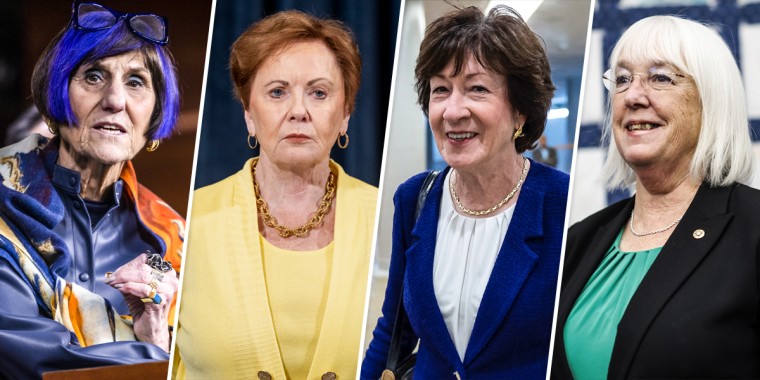
It’s a remarkable feat for these veteran lawmakers who arrived on Capitol Hill during the 1990s, at a time when there were few women serving in Congress, and even fewer calling the shots on how federal dollars should be spent.
In the Senate, Washington Democrat Patty Murray is the new Appropriations Committee chairwoman, while Maine Republican Susan Collins is the ranking member. They are taking over from two longtime male colleagues who retired last year.
In the House, Texas Republican Kay Granger is the new Appropriations Committee chairwoman, while Connecticut Democrat Rosa DeLauro, the panel’s past chair, is serving as ranking member.
Together, the quartet of powerful appropriators is known on the Hill as “the Four Corners.”
In the 1970s, “there were two women who headed up a committee, and the committee was on the House beauty salon. And so, now you are looking at the table with the four women,” DeLauro said in an interview, reflecting on the moment.
“Oftentimes people say, you know, ‘We need to have women at the table.’ Well, women are the table.”
Spending and debt fights loom
Over the decades, these women have seen their share of spending fights. But this year, facing a divided government, they find themselves in the middle of what could be the biggest battle of them all. Vowing to rein in federal spending, newly empowered House conservatives — led by Speaker Kevin McCarthy — are demanding massive spending cuts before they agree to raise the $31.4 trillion debt ceiling.
It means these appropriators, along with their respective House and Senate leaders, will play a critical role in trying to avert a potential government shutdown, catastrophic debt default or both in the coming months.
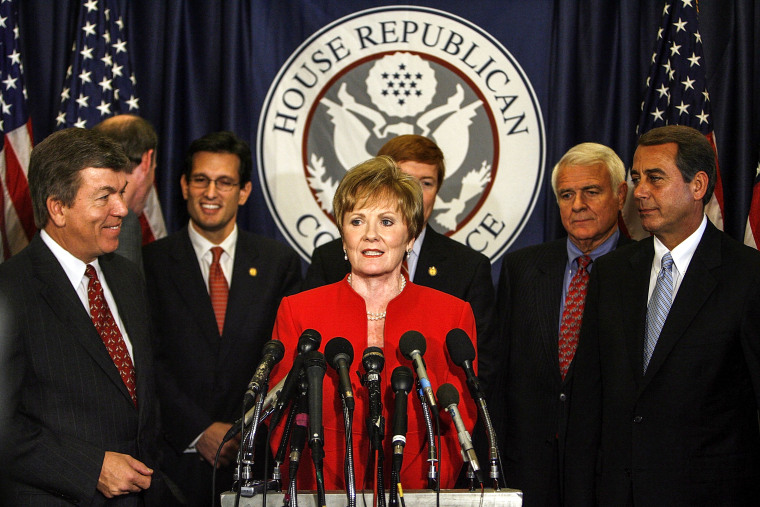
“It’s really a difficult time. We can make it through. But I’m absolutely convinced that we have to stand together,” said Granger, who last week became the first female Republican to chair the House Appropriations Committee.
That will not be easy. During last year’s lame-duck session, House GOP leaders made the decision not to participate in negotiations on a sweeping omnibus spending package, which funds the government through September of this year. The three other House and Senate negotiators announced a deal without Granger, who was then the vice chair of the committee.
Now, many of her GOP colleagues on the far right are calling for not only deep cuts to nondefense discretionary spending that could target food security, child care, education, health care and housing programs. They want all options on the table, including possible cuts to the Pentagon.
Granger, a defense hawk, called that a nonstarter. The last time such defense cuts were proposed, Granger said her response to fellow Republicans was: “You can’t do that. If you do that, you’ll see me on every television show, every newspaper, because we can’t do that, we can’t. Those cuts are enormous.”
With seniority comes clout
When Collins, the daughter of Maine politicians, first arrived in the Senate in 1997, she was ranked No. 99 out of 100 members in seniority. In the new 118th Congress, Collins is now eighth in seniority, while Murray, who took office in 1993, is fourth. The moderate Mainer and Washington state’s “mom in tennis shoes” now occupy two of the most powerful positions in the upper chamber.
“With seniority comes more clout, more influence, more knowledge,” Collins said standing in her Capitol office.
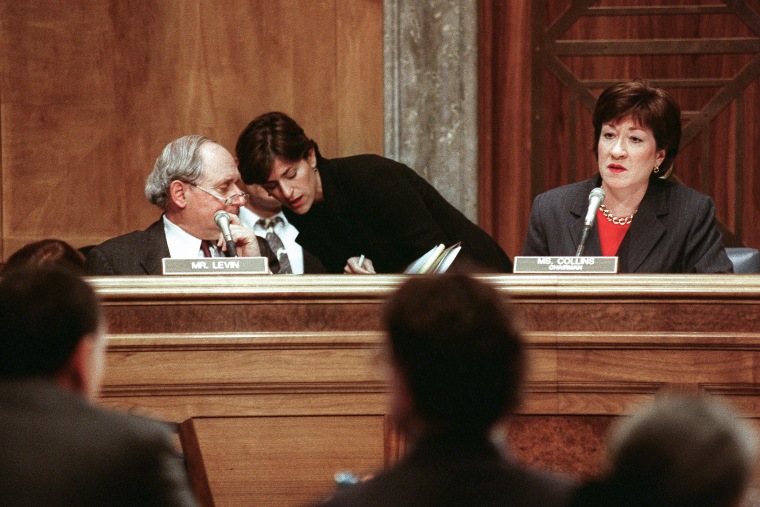
They may not see eye to eye on every issue — after all, they represent distinctly different states and districts — but the four appropriators have gone through similar experiences as they’ve climbed the rungs of power. They’ve known each other, and each other’s struggles, for decades.
“We had to prove ourselves in every single room that we were just as capable, which is why maybe we’re better legislators,” said Murray, who also made history this month by becoming the nation’s first female Senate president pro tempore, third in line to the presidency.
Women, Murray said, are good communicators, and she and her colleagues can translate a big, complicated appropriations bill for everyday Americans.
“We speak English: We talk about child care, we talk about making sure that our food supply is safe in this country, we talk about making sure that you have a road that you can drive on to pick up your kids at school that’s safe,” Murray said.
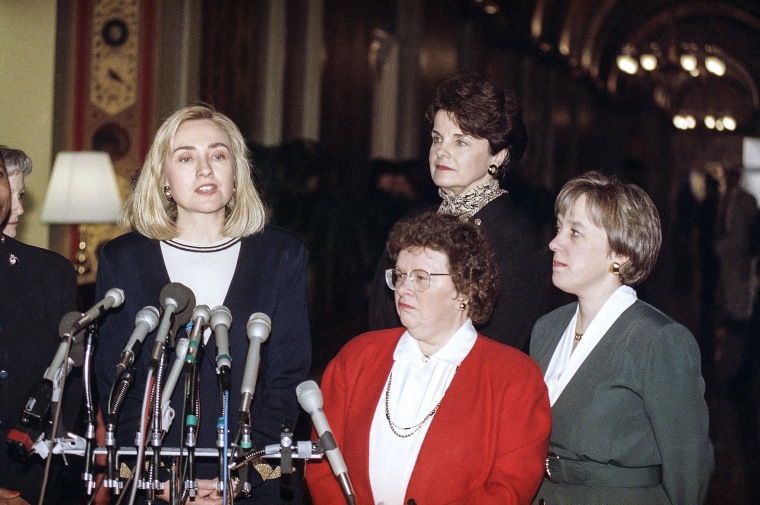
“I certainly think men can make the argument. But that’s not their heart, that’s not what they fight for,” she continued. “I also think women tend to come to Congress to get things done. They don’t want to wait for the next legislative session. We want to finish things and get home and take care of our families. So I think we work well together. We listen to each other. Do we differ on major policies? Absolutely. But I think we overall want to find solutions to problems — not just have problems that we campaign on.”
‘Relationships matter’
It’s not just these four senior lawmakers making history. On the other side of Pennsylvania Avenue, Shalanda Young is the first Black woman to serve as the White House’s top budget official.
As director of the Office of Management and Budget, Young is responsible for putting out President Joe Biden’s budget proposal, an annual spending blueprint that spells out his priorities and values.
But as a 14-year House Appropriations staffer, she also intimately knows each of the top appropriators and recognizes the significance of this glass-ceiling-shattering moment. Paraphrasing her boss Biden, she says, it’s a “big deal.”
“That’s huge. I came to this town in the summer of 2001, and men held every one of those budget jobs, including my own, so that was not representative of the way this country looks,” Young said in an interview in the Eisenhower Executive Office Building.
“We hope these first aren’t the last. And I know I do my job to make sure that little girls behind me know that the sky’s the limit,” the new mom added. “I have a 14-month-old, Charlie, and my goal is to ensure that this is no longer historic, that having women run the budget process for the country is not a newsworthy thing, and that she is totally unimpressed by this historic timeframe because it’ll be a norm.”
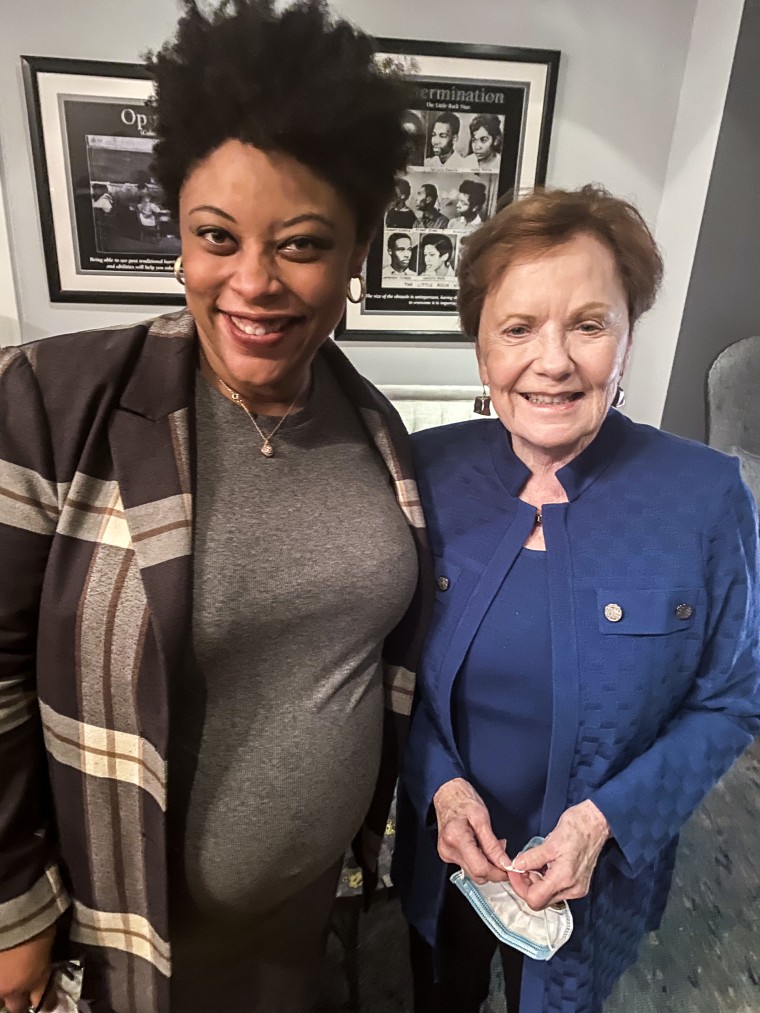
Two years ago, members of the House Appropriations Committee threw Young a baby shower and she learned that Granger is the mother of twins. Granger gave Young a piggy bank for baby Charlie.
“Those relationships matter,” Young said.
Like Young, three of the four appropriators have children and are familiar with the hardships of forging a career while taking on motherhood. All four lawmakers said they aim to shine a spotlight on issues like child care, paid leave and gaps in the workforce that primarily affect women due to the lack of critical support structure.
“I think men do see those issues because we push them really hard,” Murray said when discussing differences between men and women in congressional leadership.
“But we have to remind them constantly that these are front and center and first priorities, not last priorities.”
Source: | This article originally belongs to Nbcnews.com
